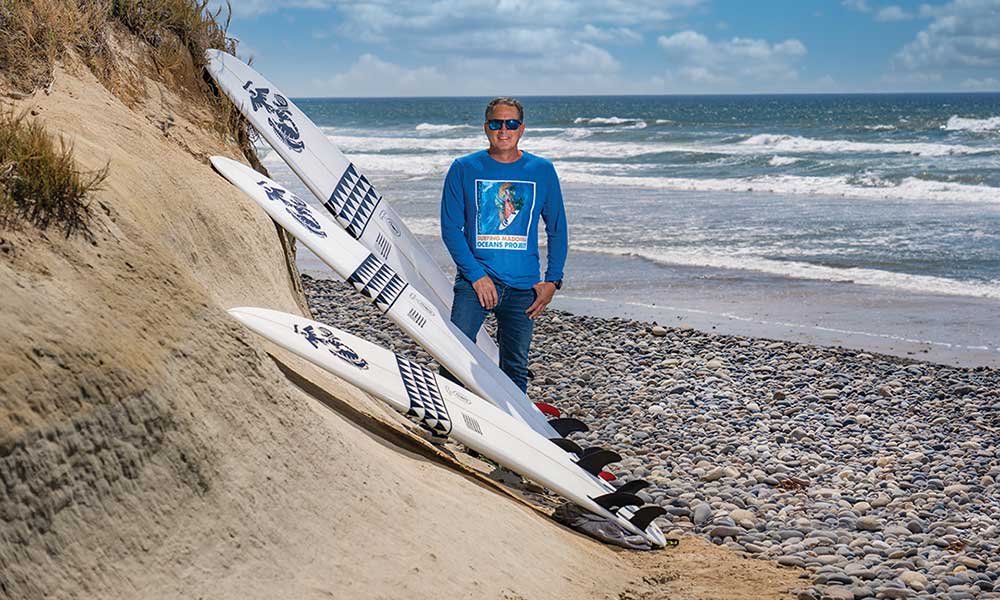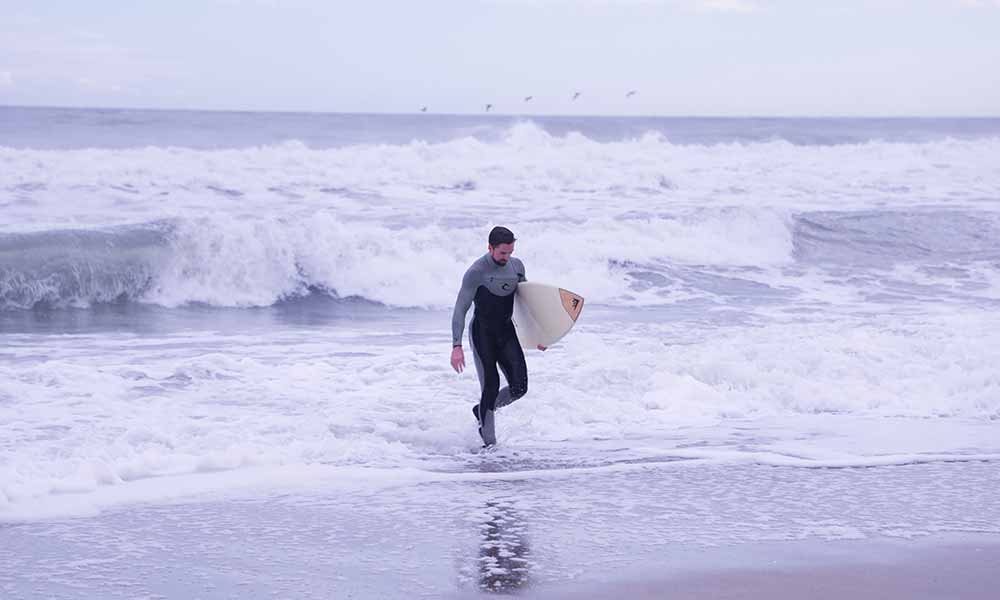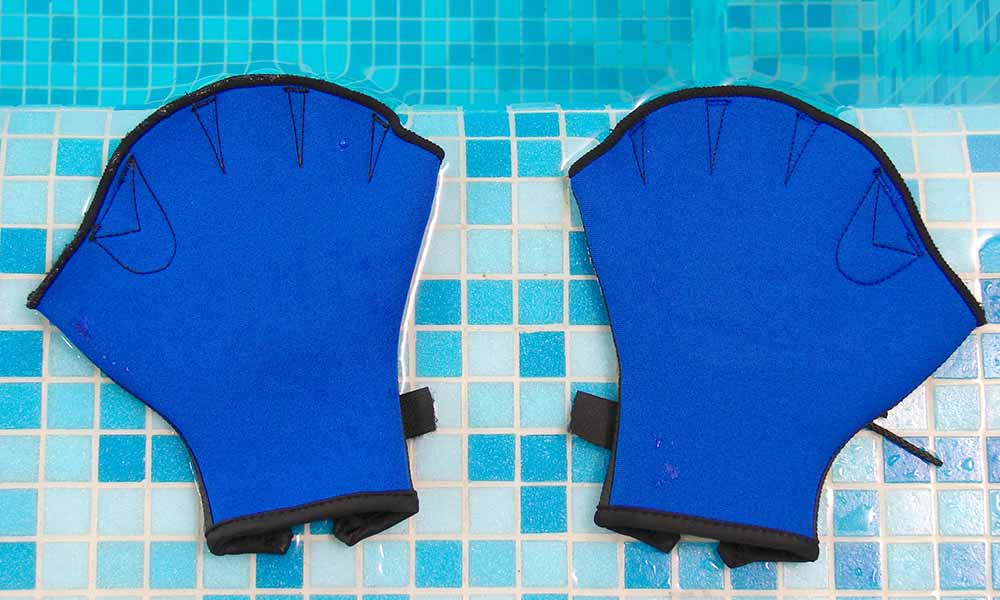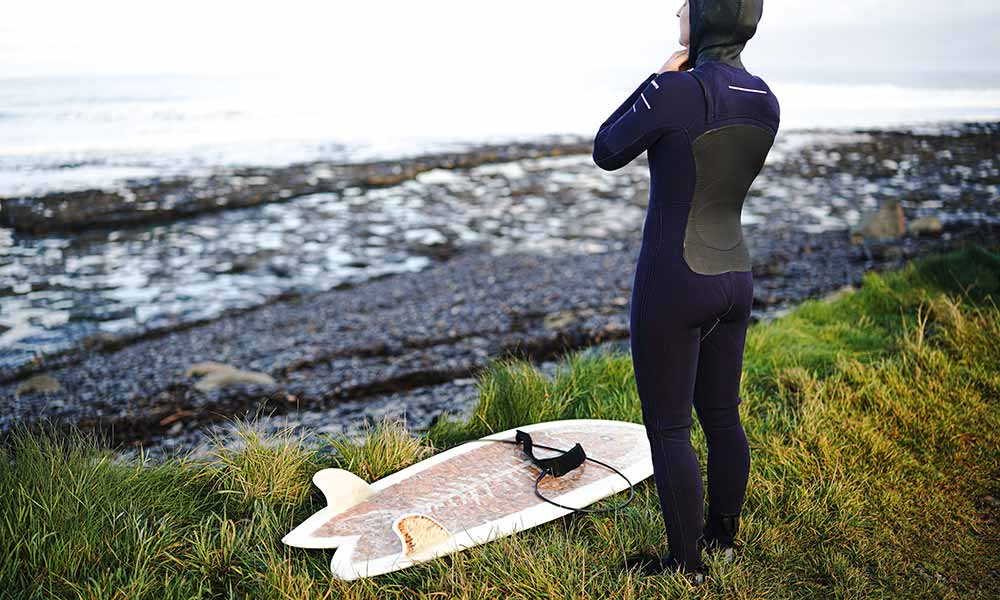You’ve just got a new tattoo and you’re eager to strip down, head to the beach, and show it off. Is it a good idea or should you wait?
The short answer is: No, you should not surf immediately after getting a tattoo. The tattoo needs to heal before surfing or exposing it to the sun. You can surf after about 2 weeks once the dead skin around the tattoo has flaked off and your skin has healed.
Can I Surf with a New Tattoo?
A tattoo is an open wound and the ocean is dirty and can get even dirtier after it rains. That should tell you all that you need to know.
Wait for at least two weeks before surfing after getting a tattoo.
That should be long enough for it to heal completely. However, you may need to wait a little longer, with four weeks being preferable.
Why Surfing After Getting a Tattoo is Not Advised
If you’re desperate to get into the water and think you can dismiss the advice given by your tattoo artist and discussed in this guide, the following might change your mind.
There is a Risk of Infection
This video shows you exactly why you should not go surfing with a new tattoo.
As noted above, a tattoo is basically an open wound and the ocean is a polluted mess.
Polluted ocean water carries all kinds of harmful bacteria and if these get into the wound, it could become infected.
Think of it another way…
If you cut yourself and you’re waiting for the wound to heal, would you head to the nearest landfill and start diving in the trash heaps?
Of course not, and while ocean water is not quite as polluted (not yet, anyway), it’s still loaded with bacteria and can cause just as many problems.
It Could Damage the Skin
Although some skin irritation is to be expected with a new tattoo, you could worsen it by exposing your skin to ocean water.
Your skin is raw and sensitive and so exposure to bacteria could worsen it.
It Will be Exposed to Sun Damage
When you surf, you expose your skin and your new tattoo to sun damage.
Sun exposure will prolong the healing time and may lead to itching and blistering.
You should cover your tattoos with sunscreen to prevent them from getting damaged after your tattoo has healed.
Can I Swim After Getting a New Tattoo?
You should refrain from getting your tattoo wet in general from sources other than when you shower.
Not only will swimming break this rule, but it will expose your skin (and your new tattoo) to chlorine.
To be on the safe side, stay away from water when you have fresh ink and follow the instructions provided by your tattoo artist.
It Could Damage Your Tattoo
It’s not just a bacterial infection and skin irritation that you need to worry about. Rushing the healing process could also harm your tattoo, leaving you with faded and discolored ink.
When you surf or swim in saltwater, your skin dries and cracks and this can prolong the healing process.
How Long After Getting a Tattoo Can I Surf?
You should wait between 2 and 4 weeks for small tattoos before surfing. Always err on the safe side and give new tattoos longer to heal where possible.
If you absolutely don’t need to be in the water after 2 weeks, give it another 2 weeks, make sure it has fully healed, and then consider visiting your local surf spot.
Contact your tattoo artist for more information. They can tell you all that you need to know about your tattoo.
Can Surfers Get Tattoos?
Of course! There’s no reason why you can’t get a tattoo as a surfer.
In fact, many surfers have tattoos and aren’t shy when it comes to showing them off.
Just make sure you give all new tattoos plenty of time to heal and don’t forget about moisturizers and sunblock. Surfers are more prone to skin cancer than the general public, so you need to be very protective of your skin in general and use sunscreen, not just when you have a tattoo.
Can I Go In The Ocean One Week After A Tattoo?
If it is a very small tattoo and it has healed completely, you can consider getting into the water. However, it’s unlikely to have healed this quickly and even if it looks okay, you should still err on the side of caution.
Can You Get In Saltwater After Getting A Tattoo?
Salt is very harmful to a new tattoo. It can draw out the ink and dry the skin. Not only are you exposing yourself to bacteria, but you could be damaging your tattoo and your skin.
How to Speed Up the Healing Process After Getting a New Tattoo
Tattoo artists have given hundreds if not thousands of tattoos. They have first-hand experience of the healing process and know better than anyone how the tattoo will heal and what you should do.
Their instructions may include:
- Keep your hands clean if you’re interacting with the tattooed area
- Clean the area with lukewarm water
- Use gentle and unscented soap
- Stop your skin from drying out by using a mild and unscented moisturizer
- Avoid swimming pools and ocean activity
- Don’t take baths
- Keep the area away from direct sunlight
- Don’t scratch the skin or peel dry skin away
- Drink plenty of water to stay hydrated
The Healing Process of Tattoos?
Your tattoo will go through a healing process and you’ll know it’s ready when you have reached the final stage of this process.
To begin with, the skin may feel a little hot and painful. The wound is fresh, so it’s to be expected.
After the first week or so, it will start itching and the skin will begin to peel. The skin will then dry out, although the itching may remain.
It’s important to keep your skin moisturized at this point, and you may notice some patches of rough and dry skin, as well as scabs. You want to avoid the scabs by moisturizing it every few hours or when you feel it tightening up or feeling dry.
After a couple of weeks, the dryness will go away, the skin will heal, and your tattoo should be ready.
You can go ahead go for a surf!
When Should I Worry?
If you notice any of the following issues (whether you have been surfing or not) contact a healthcare professional immediately:
- Redness that seems to be getting worse
- Redness that is spreading from the tattoo
- The skin is hot to the touch
- There is a rash or blistering
- The wound is bleeding
- You have a fever
- There are open sores
- The wound produces pus
- The wound is painful to the touch
What If I Have to Surf or Swim After Getting New Body Art?
If you find yourself in a situation where you simply can’t avoid getting your tattoo wet, there are some things you can do to minimize the damage.
It’s worth noting, however, that these are not foolproof methods and there is still a risk. So, when we say, “absolutely have to”, we don’t mean that you’re bored and missing the ocean. We highly recommend you DO NOT go surfing until you tattoo is fully healed.
Wear a Waterproof Bandage
Use a waterproof dressing to keep the area completely covered while you’re in the water. These bandages are available in many different sizes and will prevent water from getting to your wound.
Keep Covered
If possible, wear a rash guard or other suitable clothing to protect your skin from the water. It won’t prevent water from getting to your bandage, but it might limit the damage. It will also reduce sun exposure.
Wash The Area
As soon as you get out of the water, pat your skin dry, remove the bandage, and wash the area with clean water and mild soap.
Pat it dry with paper towels.
Summary: Surfing After Getting A New Tattoo
To summarize, surfing after getting a tattoo is a terrible idea. The longer you give it to heal, the better it becomes, but you should always give your tattoo time to heal where possible no matter if you when for a surf trip to Hawaii and got a Hawaiian-styled tattoo or not.
Leave it for at least two weeks and monitor the healing process to ensure it’s going well.
Ignoring these rules could expose your healing skin to bacteria and infection, as well as sun damage.
If you absolutely have to get in the water, whether for surfing, swimming, or visiting your local pool, keep the area clean, covered, and protected.







